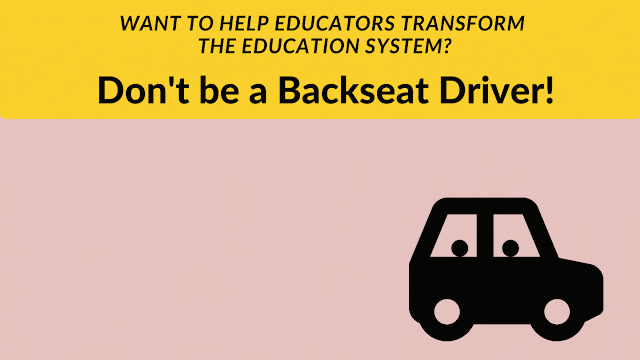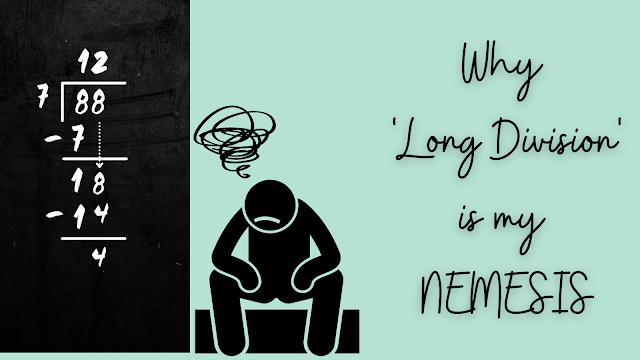Coaching teachers: When is feedback most powerful?
Coaching Teachers: When is feedback most powerful?
The idea: When is systematic feedback most useful for learners in their journey from Novice to Mastery? Feedback on practice is most useful for learners who are building mastery, not as much for novices and for learners who have achieved mastery. This thinking frame can help you plan a structured coaching/ feedback system more effectively.
Let me start by acknowledging the powerful role of feedback in learning ANYTHING. Education literature tells us how good feedback can positively impact learning and I have seen first hand the immense impact of feedback on learning over the last decade - for myself, my students and my colleagues.
Yet, I often found myself in situations where well intended, relevant feedback did not feel useful. When I reacted like this, I attributed my feelings to not being open-minded enough. Until I read Deep Learning by Stellan Ohlsson. In the book, I discovered one of the most useful thinking frames for someone in the business of providing systematic feedback as a Teacher and Coach.
Ohlsson was not talking about feedback specifically but in his ‘Nine Modes Theory’ he charts out the most useful types of information for practicing learners at different phases in their learning journey.
As a side note, I am not sure I fully understood everything in the book, it is very academic and filled with descriptions of computer simulated models of the cognitive theories. I know 2 or 3 colleagues who are avid readers but could not get through the whole book. I powered through somehow, and picked up a few fantastic insights from the parts I was able to process.
Here is description of that insight:
The learning journey is broken up into three phases:
The Novice Phase, when the learner is introduced to the skill for the first time without any prior knowledge/experience
The road to Competence, when the learner gets it right once to when they can get it right consistently
The road beyond Competence, when the learner is competent in the skill and is now honing their skills, and is in the process building a high level of expertise in the area The road to Competence, when the learner gets it right once to when they can get it right consistently
So, when does feedback have the greatest impact?
Not Phase 1: Novice. Here, learners. benefit from explicit Instruction, modelling, analogies and examples. Too much feedback can inundate the learner at this stage. Small doses of basic feedback might be ok, but novice learners need time to process new knowledge and can easily get overwhelmed or lose motivation with too much feedback.
The sweet spot - Phase 2: The road to Competence. This is the sweet spot, the best time for lots of good feedback on practice. Why? Because after a certain level of foundational knowledge is achieved it is hard to teach things out of context with one-size-fits-all instruction. Learners in this phase benefit from practicing and lots of feedback on their practice. Both types of feedback are valuable i.e. reinforcing feedback for what the learner is doing well and corrective feedback on mistakes, along with suggestions for how it can be done better. Reinforcing feedback is important because it helps the learner become more efficient and eventually leads to generalization and corrective feedback makes their practice more efficient.
Not Phase 3: The road beyond Competence. In this final phase the learner is typically optimizing and generalizing their abilities. They still do this by practicing, but practicing in a wide-range of diverse contexts and using that experience to optimize and generalize their skills. The impact of feedback at this stage is weak again, most likely because as a learner approaches a high level of expertise, there are fewer people who are knowledgeable enough to provide feedback that the learner isn’t already aware of or is useful to the learner. Feedback from a mentor who is an expert in the area is useful at this stage.
Hope this helps you! I have written this post with educators in mind, since classroom observations and feedback are so central to the process of building teacher capacity. But personally, I have used this thinking frame beyond my professional life, in my personal life with my family and other relationships too. Would love your feedback in the comments but remember I am a novice - this is my first blog post :)
Please note: When complex ideas are simplified into basic models to aid thinking, we lose some depth. It is important to remember this limitation.





This was concise and clear to understand. Would love to read more with examples of your experiences as well :-)
ReplyDeleteLove this framework Radhika. Would like to purchase a copy of the book you referenced in the article as well. Thanks for writing this piece.
ReplyDeleteThank you!
DeleteThe way you have explained- I think you are on the road to competence..
ReplyDeleteExcellent Radhika…
Thank you Savi! So thrilled to receive a comment from you!
Delete